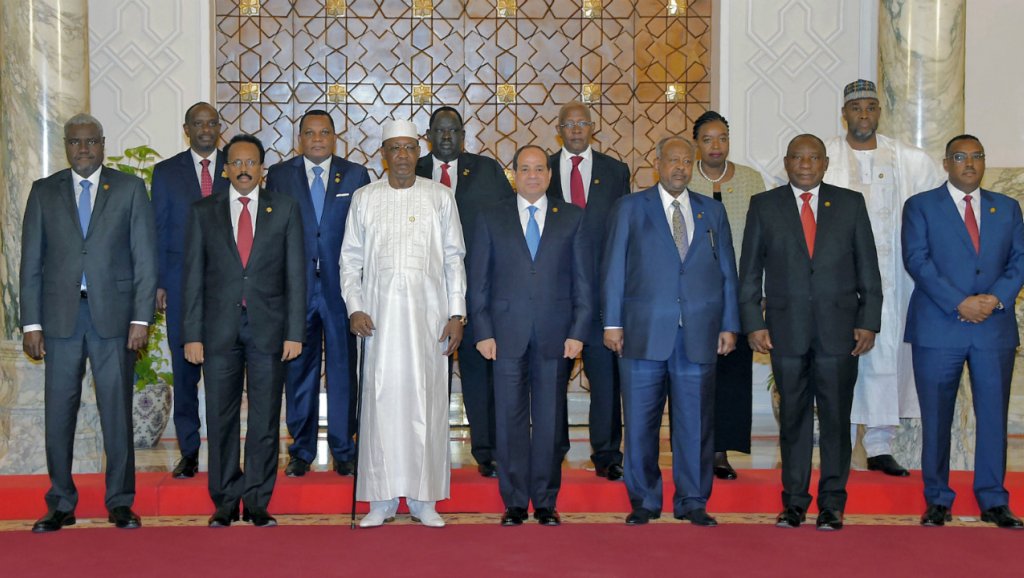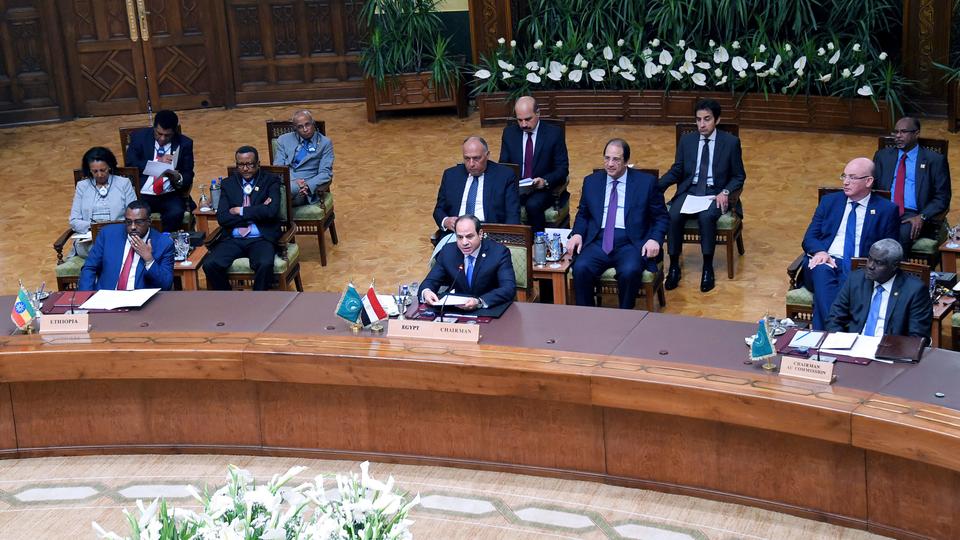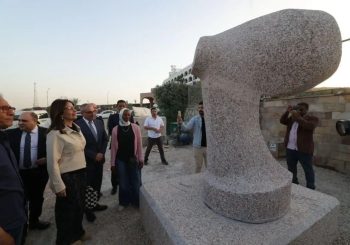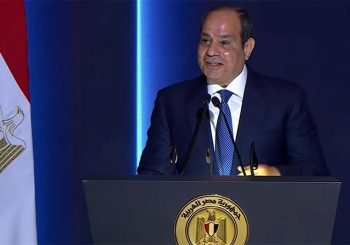
African leaders gathered in Cairo on Tuesday to discuss the situation in Sudan 12 days after former President Omar Al-Bashir was ousted as a result of four months protests and civil disobedience urging Sudan’s ruling Transitional Ministry Council (TMC) to handover power to a civilian government within three months.
Egypt’s President Abdel-Fattah El-Sisi emphasized “Egypt’s full support to the choices and free will of the Sudanese people in determining their country’s future, and the consensus they will reach in this critical juncture in their country’s history,” during his opening speech.
The African leaders from Chad, Djibouti, Rwanda, Congo, Somalia, and South Africa warned the TMC that if they do not abide by implementing democracy and listen to the demands of the people within the timeframe, the TMC would be expelled from the union. A suspension from the African Union would affect the TMC’s efforts in getting international alliances and recognition as Sudan’s interim rulers.
It is important that this situation is resolved to avoid instability in Sudan which, if deemed destructive, will have negative effects on the whole continent. Egypt’s president added that “the consensus (between the civilians and TMC) would allow them to overcome this critical period and its challenges to fulfill a peaceful and seamless transition of power…while preserving state institutions as well as the country’s unity and territorial integrity.”
El-Sisi highlighted that African countries are the only ones who can solve them and do not need any foreign involvements, because they understand the complications in their countries and region. He also suggested that a conversation between the Sudanese people and political powers in Sudan is needed in order to achieve a peaceful transition.
“As neighboring countries to Sudan… and regional partners, we seek to provide support and assistance to the Sudanese people to help achieve the stability and prosperity they deserve.”
While the TMC has combat pressures to handover power to civilians, it said that it is welcoming to hand power to a civilian government to rule the country for the interim period of up to two years.
However, protesters say this would leave ultimate power in the military’s hands, since the military is determining who is part of this civilian government. Instead, protesters are now demanding that the ruling council be staffed by civilians with military representation.
Recent economic hardships have left civilians hopeless and lead to a four month long protest before Bashir finally stepped down. Prices of bread have doubled to three pound per piece of bread. The limited supply of petrol has queued citizens for hours at gas stations across the country and empty ATMs have left people cashless. The highest price for 1 USD equals SDG 72 in the black market as of April 2019, up from around SDG 20 in last January 2018.
The chants “zanagat, zanagat”, which roughly translates to it got too tight, took over the streets of Atbara where they burned down the National Council Party headquarters in December 2018.
Sudan’s economy has been struggling for over two decades after the US placed a 20-year embargo on the country for allegedly sponsoring terrorism. The trade sanctions were recently lifted in October 2017.
The country’s economy further plunged after South Sudan seceded becoming the world’s youngest independent country in 2011. Oil exports was Sudan’s main source of foreign currency, yet after the divide, most oil fields are now located in the independent state of South Sudan costing Sudan three quarters of its oil outputs.
Although the demonstrations began as a youth movement, gradually they have gained the support of professionals including doctors, professors and the middle-classed segment of society.
The protests in Sudan, compared with the unfurling and contemporaneous events in Algeria, have sparked Egyptians to reflect over the current political situation in the country as well as the future of Sudanese-Egyptians relations.







Comments (0)